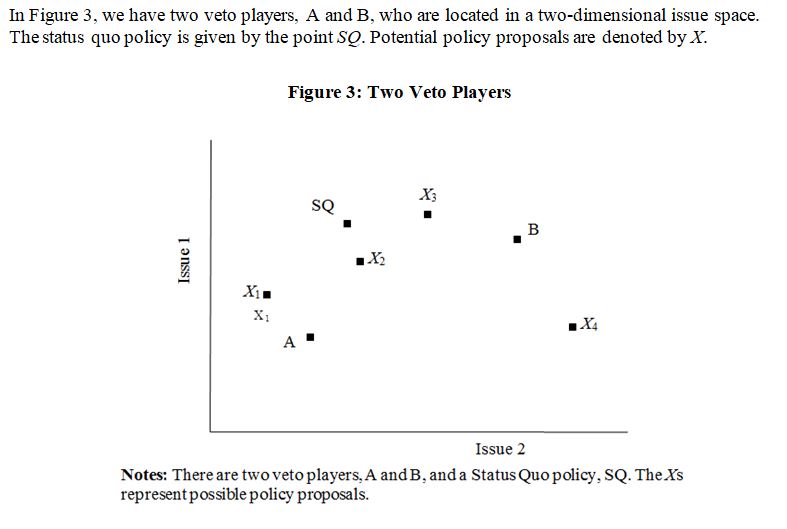Which statement explains why the lack of expertise is a structural disadvantage for the U.S. Congress?
a. It leads to poorly written laws that are often struck down by the courts.
b. It gives a large amount of power to junior-level members of standing committees.
c. It leads legislators to rely on experts in the executive branch for information and advice.
d. It forces legislators to spend most of their time gathering information instead of debating ideas.
c
You might also like to view...
Which of the following best illustrates the idea of direct democracy?
a. The United States. b. Russia. c. India. d. Iraq. e. Ancient Athens.
Unemployment insurance is paid for by
a. state grants. b. employer premiums. c. federal taxes. d. employee payroll deduction. e. a special state UI fund.
If Figure 3 remained the same except that B were no longer a veto player–that is, if A could choose policy independently—where would policy end up?

A. X1
B. X2
C. X3
D. X4
E. A
F. B
G. SQ
Discuss the decision-making process of the Supreme Court. Begin with the Court’s decision on whether to hear a case. What factors influence whether the Court hears a case? Then, explain how the Court decides cases. What factors influence how the Court decides to rule? What factors do you think should be most important for justices to consider when making their decisions? What factors should be least important? Be sure to defend your arguments.
What will be an ideal response?